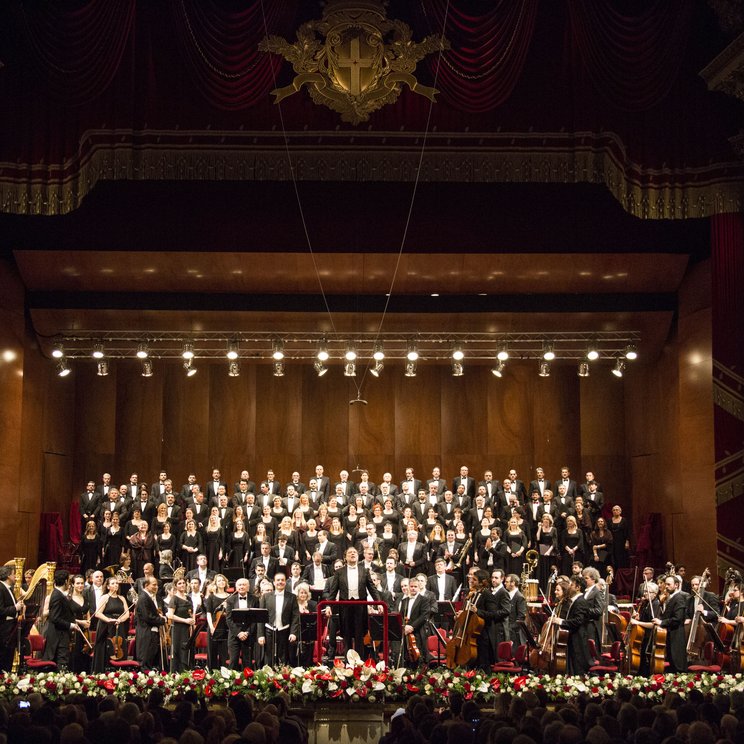
Chorus of the Teatro alla Scala
Vita
The illustrious history of La Scala in Milan began on 3 August 1778, when the theater was inaugurated with the premiere of Antonio Salieri’s L’Europa riconosciuta. For the first 75 years of its existence, the orchestra of the Teatro alla Scala was mostly led by concertmasters, until Alberto Mazzucato became the first conductor to ascend the podium in 1854. Franco Faccio was appointed the theater’s first Music Director in 1871; he also conducted the premiere of Verdi’s Otello there in 1887. His successors have included Arturo Toscanini, Tullio Serafin, Victor de Sabata, Carlo Maria Giulini, Claudio Abbado, Riccardo Muti, and Daniel Barenboim. Riccardo Chailly has served at the helm of the Teatro alla Scala Chorus and Orchestra since 2015 and will be succeeded by Myung-Whun Chung in 2027. No less prominent is the roster of guest conductors, which includes such greats as Wilhelm Furtwängler, Herbert von Karajan, Leonard Bernstein, and Carlos Kleiber. Today, 135 musicians comprise the La Scala Orchestra, which attaches particular importance to a round, warm, and finely balanced sound. The Teatro alla Scala Chorus, which has been conducted by Alberto Malazzi since 2021, also plays a major role in the theater’s reputation. In addition to opera performances, the Chorus also gives symphony and a cappella concerts, performing a repertoire that ranges from Carlo Gesualdo to contemporary works. Yet both ensembles are primarily devoted to the great works of Italian music theater, particularly those of Rossini and Verdi, which are the focus of their Lucerne Festival program.
August 2025